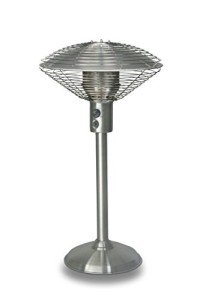Are You Responsible For A Buy Gas Tower Heaters Budget? 12 Ways To Spend Your Money
A Comprehensive Guide to Buying Gas Tower Heaters
Gas tower heaters have acquired considerable appeal recently due to their efficiency and efficiency in supplying heat and convenience in living spaces. These heaters cater to numerous needs, from outdoor events to indoor heating solutions, making them a flexible choice for many homeowners. This post intends to supply comprehensive insights into the important aspects to think about when purchasing a gas tower heater, complete with a detailed table comparing different designs, FAQs, and lists to help with informed decision-making.
Comprehending Gas Tower Heaters
Gas tower heaters are appliances created to offer heat using gas as a fuel source. They typically can be found in 2 kinds: propane and gas models. Their vertical design allows them to deliver heat over a bigger area compared to standard heaters. Some notable advantages include:
- Efficiency: Gas heaters normally warm up spaces quickly, providing immediate heat when required.
- Movement: Most gas heaters are portable, allowing users to move them easily from one area to another.
- Flexibility: Suitable for both indoor and outdoor usage, these heaters can deal with different settings, from yards to patios.
Key Considerations When Buying Gas Tower Heaters
When wanting to buy a gas tower heater, several key factors must be considered:
- Fuel Type: Decide in between propane and natural gas based on availability in your area and cost factors to consider.
- Heat Output: Look for heaters with sufficient BTU (British Thermal Units) scores for the designated space.
- Safety Features: Safety mechanisms like automated shut-off, anti-tilt features, and tip-over avoidance are essential for safe operation.
- Portability: Check if the heater features wheels for simple motion.
- Style and Size: Ensure the design fits your visual and is the ideal size for the designated location.
- Rate: Compare prices to discover one that fits your budget while still supplying quality functions.
Contrast Table of Popular Gas Tower Heaters
Design
Fuel Type
BTU Output
Security Features
Cost Range
Design A
Propane
40,000
Automatic shut-off
₤ 150 – ₤ 200
Design B
Natural Gas
30,000
Tip-over switch, security grill
₤ 100 – ₤ 150
Design C
Propane
50,000
Anti-tilt, child security lock
₤ 200 – ₤ 300
Model D
Natural Gas
35,000
Carbon monoxide gas detector
₤ 180 – ₤ 230
Design E
Propane
45,000
Flame failure safety shut-off
₤ 170 – ₤ 220
Benefits of Gas Tower Heaters
Picking a gas tower heater features a number of advantages:
- Quick Heating: They warm up promptly, making them ideal for sudden modifications in weather.
- Economical: Compared to electrical heaters, gas heaters often have lower running expenses, particularly with competitive gas costs.
- Eco-Friendly Options: Natural gas heaters produce fewer emissions compared to other heating methods.
- Outdoor Use: They are ideal for outdoor patios or outdoor gatherings, enabling year-round usage.
Downsides of Gas Tower Heaters
While gas tower heaters come with lots of benefits, there are also some drawbacks to consider:
- Installation: Some models may require professional setup, especially those developed for natural gas.
- Gas Connection: For gas models, ensure you have an appropriate gas line connection readily available.
- Portable Limitations: Propane designs are portable, but refilling gas can be troublesome.
Often Asked Questions (FAQs)
Q1: Are gas tower heaters safe to use inside your home?
A1: Gas tower heaters can be utilized inside but must be vented effectively to avoid the accumulation of hazardous gases. Describe Patio Heating Solutions for safe indoor use.
Q2: How do I keep my gas tower heater?
A2: Regular upkeep includes looking for gas leaks, cleaning up the filters, and ensuring safety features work effectively. Always describe the user manual for particular maintenance guidelines.
Q3: Can I use a propane heater on my patio?
A3: Yes, propane heaters are specifically created for outdoor usage. Guarantee you follow security standards and keep away from flammable products.
Q4: What is the difference between propane and natural gas heaters?
A4: Propane heaters use propane gas kept in portable tanks and are perfect for areas without a gas line. Natural gas heaters require a direct connection to a gas line and are normally more cost-effective for consistent use.
Q5: How can I enhance the effectiveness of my gas tower heater?
A5: To improve efficiency, ensure that the location is well-insulated, close doors and windows, and position the heater in a tactical location devoid of obstructions.
Purchasing a gas tower heater includes cautious factor to consider of several factors, from the kind of gas used to safety features. Buyers must weigh the pros and cons to identify which model best suits their requirements. The market offers different options, each with different requirements and cost varieties, making it important to perform thorough research study.
Investing in a quality gas tower heater can considerably improve convenience levels in homes and outdoor settings, making sure warmth throughout cold days and nights. By adhering to the standards offered in this post, people can make educated choices that enhance their heating solutions efficiently.
